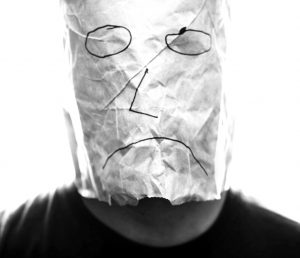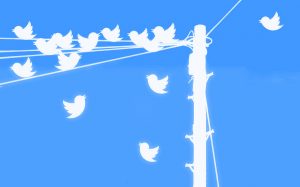The Twitter-sphere is a confusing place, especially when it comes to hot topics and controversial opinions. Public-shaming has never been bigger than now, with the ease of calling out anyone for their opinion in front of thousands of other users. If you are someone with a big social media presence, it’s often better to stay completely quiet in these situations to avoid being slaughtered by online trolls. “Conform or Die” as Teague refers to it on the Huff Post.
I think, therefore I hashtag.
Hashtags are a great way of getting your tweets noticed. It joins them onto a thread or chain of thoughts made up by everyone using that hashtag and can be viewed collectively if you click on the hashtag. However, like in many cases, where there is a positive outlook, there’s also a bad connected. Hashtags have become a popular way to publically shame other Twitter users, namely celebrities, but on occasion ordinary people too. Since the rise of social media, it is easier than ever to publically shame and humiliate people for their views. A hashtag can become a trend on social media in an hour…minutes even if it’s talked about widely enough. All thanks to the instant access we have from being glued to our smartphones and therefore social media it’s never been easier to broadcast our opinions.
Do you remember what public shaming was like before social media got involved? It wasn’t an instant reaction that’s for sure, and it was usually down to the tabloids and other gossip magazines to dish the dirt on the latest celeb sex scandal, baby watch or fat-shaming article. After that, the only time the public would be involved would be through talking to each other. That’s right, the good ol’ days of face to face communication.
Shaming has always been its own industry within the media, what better way to aid our low self-esteems than to take to the media and pull others apart? But now with social media in the picture, stories that should be ephemeral and disappear don’t, often coming back to haunt those involved.
The Reality of Public-Shaming
An unfortunate, yet perfect example of this happened to Lindsey Stone in 2012 when she and a friend took a distasteful picture at Arlington National Cemetery. To them, it was just a joke and a bit of fun, but to the 30,000 people that later saw the picture when it went viral it was not. The virality of the image led to petitions for her to lose her job, death threats and even threats of rape. please note: to avoid further public shame to Miss Stone I will not be including the image in this blog post.
The repercussions of the shaming here lead to Stone becoming deeply depressed after losing her job, working with disabled adults, and not leaving her house for over a year as she tortured herself reading all the comments people had made and for fear that someone might recognise her.
The bit we forget is that as we take to our keyboards and join in the trolling our comments mean something to someone, and they are going to have some serious repercussions to those receiving them. Where in conversation a brash remark is swept under the rug after a few minutes social media allows for these things to linger, meaning they are never forgotten. With this, we have become far too desensitised to the fact the online world and reality are merging more than ever into one, to the point where people have lost their jobs and faced death threats because of something they meant as a joke on social media.

How can it be solved?
Although this does not excuse the abusive original remark, fighting shaming with more shame, humiliation and a twitter witch-hunt can’t be the right way to deal with the issue. Moreover, the hypocrisy that comes around from reacting to such a post means that we are no better than one another when we air negative views. A key thing to remember here is that the liberal nature of social media means that freedom of speech public-shaming cannot be stopped, but with that neither can the first distasteful remark. Perhaps this also highlights why it’s so hard to stop public-shaming spreading in the cyber world. Yet telling someone they should die for what they’ve said is in no way better, and shows even more that the vicious cycle of cyberbullying is contaminating social media.
I know it’s easier said than done but remember that old phrase “if you can’t say something nice, don’t say it at all”? Perhaps we need to take that one on board before we take to our keyboards in the future, a little bit of respect and kindness to one another can go a long way.


Leave a Reply